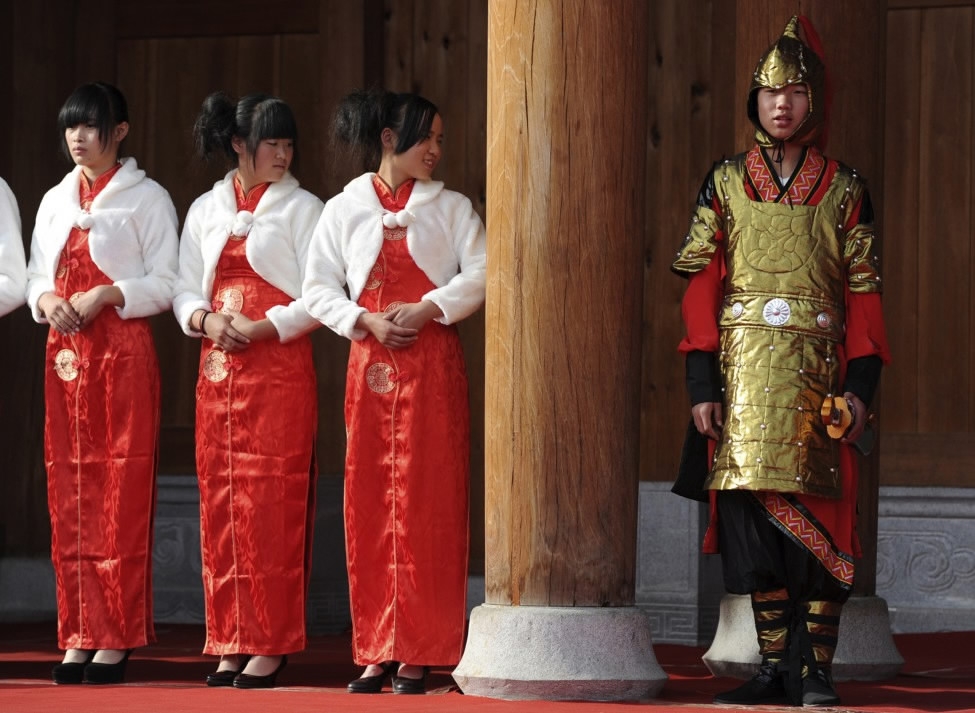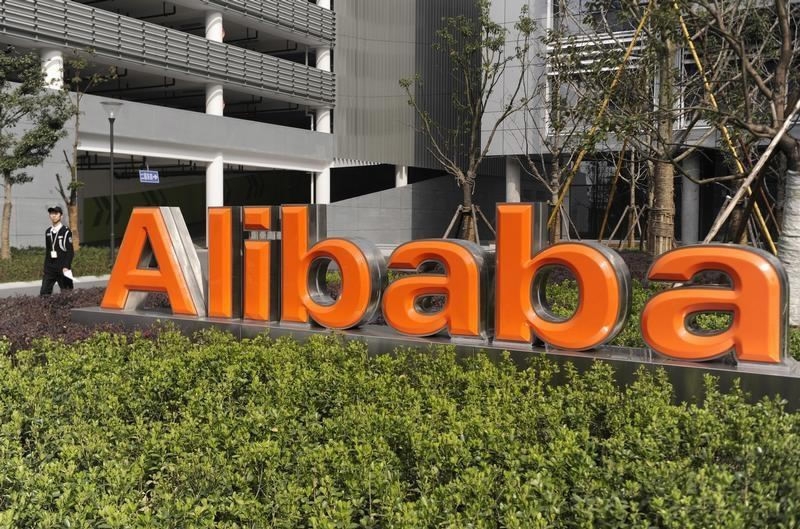
Business
14:15, 05-Dec-2017
China's service sector grows at stronger pace in November
CGTN

Growth in China’s services sector picked up to a three-month high in November, buoyed by a solid rise in new business, though the rate of expansion remained moderate and weaker than the long-run trend, a private survey showed on Tuesday.
Economists in a poll had expected the index to read 50.9 for November, lower than 51.0 the previous month.
"For the most part, the manufacturing sector remained stable in November, although some signs of weakness emerged," said Zhengsheng Zhong, director of macroeconomic analysis at CEBM Group, a subsidiary of Caixin.
"In the fourth quarter, the economy is likely to maintain the stability observed since the start of the second half of the year. Economic growth in 2017 is expected to be higher than last year, but it may come under downward pressure in 2018," Zhong added.

Waiters dressed up in costumes during a cultural festival in eastern China./Reuters photo.
Waiters dressed up in costumes during a cultural festival in eastern China./Reuters photo.
The upbeat findings broadly echo those of an official gauge of the non-manufacturing sector last week that showed activity accelerated at a faster rate in November, reinforcing the view that an expected slowdown in the broader economy would be gradual.
The Caixin/Markit services purchasing managers’ index (PMI) rose to 51.9 in November, up from 51.2 in October and the highest reading since August.
The index had plunged to 21-month low in September after hitting a three-month high in August.
New business also grew at the fastest pace in three months, with survey respondents reporting sales were supported by the addition of new clients and promotional activities. Companies slightly picked up the pace of new hiring as a result.
China’s leaders are counting on growth in services and consumption to re-balance their economic growth model from its heavy reliance on investment and exports.
The services sector accounts for over half of the economy, with rising wages giving Chinese consumers more spending power that is being felt at home and abroad.

A security guard walks past a logo of Alibaba (China) Technology Co. Ltd at its headquarters on the outskirts of Hangzhou, Zhejiang province. /Reuters Photo
A security guard walks past a logo of Alibaba (China) Technology Co. Ltd at its headquarters on the outskirts of Hangzhou, Zhejiang province. /Reuters Photo
The boost in orders and transactions prompted businesses to hire slightly faster and increase prices charged to clients at the fastest rate since July 2015.
Sales during China’s annual 24-hour shopping binge on November 11, known as the Singles’ Day, exceeded combined sales for Black Friday and Cyber Monday in the United States.
Unlike official data, the Caixin survey tends to focus more on small and mid-sized companies, which have tended to be under greater strain than their larger, state-supported peers.
The Caixin survey showed service providers in China were able to pass through higher input costs to clients, as companies raised their output charges at the quickest pace since July 2015.
Source(s): Reuters

SITEMAP
Copyright © 2018 CGTN. Beijing ICP prepared NO.16065310-3
Copyright © 2018 CGTN. Beijing ICP prepared NO.16065310-3